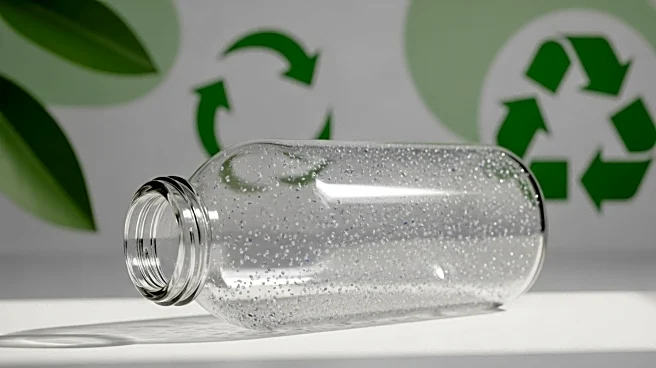What is the story about?
What's Happening?
In 2025, U.S. lawmakers have introduced several bills aimed at addressing the health impacts of microplastics. A bipartisan bill, the Microplastics Safety Act (H.R. 4486), was introduced to direct the Secretary of Health and Human Services to study the human health impacts of microplastics exposure in food and water. This study will focus on areas such as children's health, the endocrine system, cancer, chronic illness, and reproductive health. Another bill, the Plastic Health Research Act (H.R. 4903), introduced by Representative Haley Stevens, seeks to expand and coordinate programs related to plastic exposure health research, authorizing $10 million per fiscal year from 2026 to 2030 for these initiatives. These legislative efforts reflect a growing concern over microplastics and their potential health risks.
Why It's Important?
The introduction of these bills highlights the increasing concern over microplastics and their potential impact on public health. Microplastics are pervasive in the environment, and their presence in food and water raises significant health concerns. The proposed studies and research initiatives aim to fill informational gaps, enabling lawmakers to make informed decisions regarding regulation and public health policies. The American Chemistry Council supports these efforts, emphasizing the need for sound, fact-based decisions. As microplastics continue to be a topic of interest, these legislative actions could lead to more comprehensive regulations and policies to protect public health.
What's Next?
If passed, these bills will initiate studies and research programs to better understand the health impacts of microplastics. The findings could lead to recommendations for new regulations or policies to mitigate exposure risks. The ongoing interest in microplastics suggests that further legislative and regulatory actions may follow, potentially leading to a federal framework to address microplastics. Stakeholders, including industry groups and environmental organizations, will likely engage in discussions to shape future policies based on the study outcomes.
Beyond the Headlines
The focus on microplastics also raises broader environmental and ethical questions. As research progresses, there may be increased scrutiny on industries contributing to microplastic pollution, leading to calls for more sustainable practices. The legislative efforts could also influence public perception, driving consumer demand for products with reduced microplastic content. Long-term, these developments may contribute to shifts in manufacturing and waste management practices, promoting a more sustainable approach to plastic use.


















